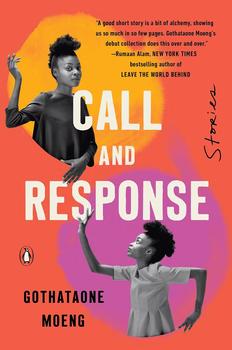Summary | Excerpt | Reading Guide | Reviews | Beyond the book | Read-Alikes | Genres & Themes | Author Bio

To read a story by Jhumpa Lahiri is to slip effortlessly
into the life of another, to immerse yourself in that life
as wholly and as seamlessly as if you've just slid into a
sun-warmed pond. Each of the stories in Unaccustomed
Earth excels at almost imperceptibly presenting a
character in full, poised at a moment of high importance in
her life. Lahiri switches between narrating the present and
filling in the back-story, slowly accreting the heft and
solidity of a life.
Her characters are mostly women who stand at the fulcrum
between their parents' immigrant generation and their
children's untroubled generation. Their parents are,
uniformly, prosperous Bengalis who moved to the Boston
suburbs in the 1970s, the women continuing to wear saris and
cook luchis while the men work at MIT and Mass General.
Their children are fully Americanized middle-class kids with
names like Maya and Monika. They themselves, the women on
whom Lahiri lavishes so much acute attention, are the ones
charged with holding these often contradictory traditions
and values together. They have grown up embarrassed by their
parents, ashamed of "potato curry sandwiches that tinted
Wonderbread green." As adults, they realize that those
sandwiches taste like home. With India at their backs and
America at their feet, they construct their lives with
purpose, discernment, and the freedom available to the
modern American middle-class woman. Yet they all feel a
palpable, inarticulate absence at the center of their lives.
It is this absence that prompts Hema, the protagonist of the
engrossing three-story cycle that completes the book, to
consider an arranged marriage. A respected and worldly
classics professor, Hema nonetheless allows her parents to
contract her into marriage with Navin.
It was her inability, ultimately, to approach middle age without a husband, without children, with her parents living now on the other side of the world, and yet to own a home and shovel the driveway when it snowed and pay her mortgage bill when it came—though she had proven to herself, to her parents, to everyone, that she was capable of all of those things—it was her unwillingness to abide that life indefinitely that led her to Navin.
Just before her wedding in India, Hema
serendipitously encounters Kaushik, the son of her parents'
friends. Kaushik's family had stayed with Hema's family for
a few months when the two were teenagers. "Their parents had
liked one another only for the sake of their origins, for
the sake of a time and place to which they'd lost access.
Hema had never been drawn to a person for that reason, until
now." Hema had thought she was returning to her Indian roots
by marrying Navin, but it is Kaushik, a globe-trotting
photojournalist with no permanent home, who returns her to
her origins. Hema and Kaushik's three stories are poignant
and perfect. Each lover narrates one of the stories, before
Lahiri picks up the third in her own gentle, unobtrusive
storytelling. If fiction can be three-dimensional, Lahiri
achieves it here.
Lahiri does not demand much from her readers. She does not
ask that we stand back and admire her prose—no show-stopping
literary antics here. She does not ask that we contend with
unlikable characters. If her women make mistakes, they are
well-intentioned ones, free of malice or selfishness or
immaturity. She does not ask us to ride a melodramatic
rollercoaster of a plot, for her stories are quiet and
ordinary. Her distanced narration pads the impact of the
stories, so that we read about many of the events without
directly experiencing them. She simply asks that we pay
attention and observe the details of her characters' worlds
with as much care as she takes to portray them, trusting her
to reveal their significance at the right emotional moment.
A safety pin holding a sari together will acquire shocking,
tragic meaning. New tiles on a kitchen wall will come to
seem sinister in hindsight. A gold bracelet will come to
symbolize the entire arc of a romantic relationship. Though
loss often defines her characters, the stories Lahiri crafts
from such loss are entirely gratifying for her readers.
![]() This review was originally published in The BookBrowse Review in May 2008, and has been updated for the
April 2009 edition.
Click here to go to this issue.
This review was originally published in The BookBrowse Review in May 2008, and has been updated for the
April 2009 edition.
Click here to go to this issue.

If you liked Unaccustomed Earth, try these:

by Gothataone Moeng
Published 2024
Richly drawn stories about the lives of ordinary families in contemporary Botswana as they navigate relationships, tradition and caretaking in a rapidly changing world.

by Sindya Bhanoo
Published 2023
These intimate stories of South Indian immigrants and the families they left behind center women's lives and ask how women both claim and surrender power - a stunning debut collection from an O. Henry Prize winner.
Your guide toexceptional books
BookBrowse seeks out and recommends the best in contemporary fiction and nonfiction—books that not only engage and entertain but also deepen our understanding of ourselves and the world around us.